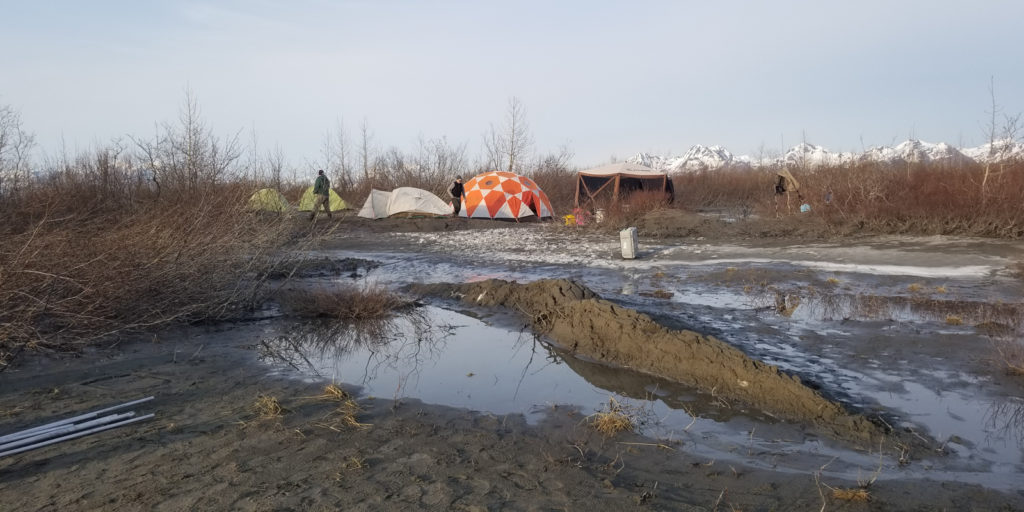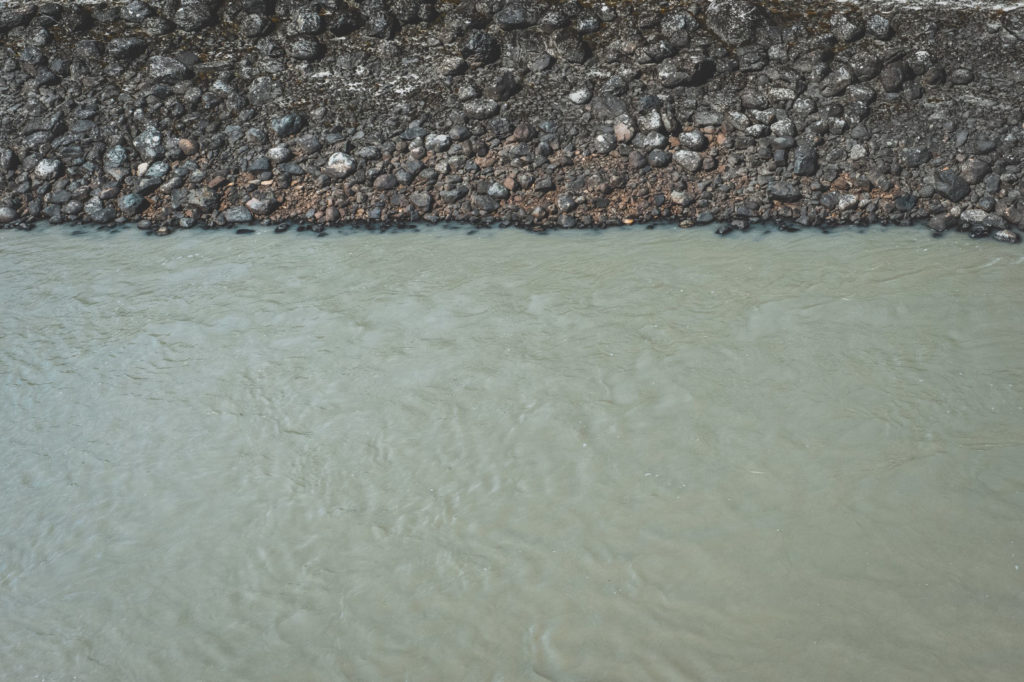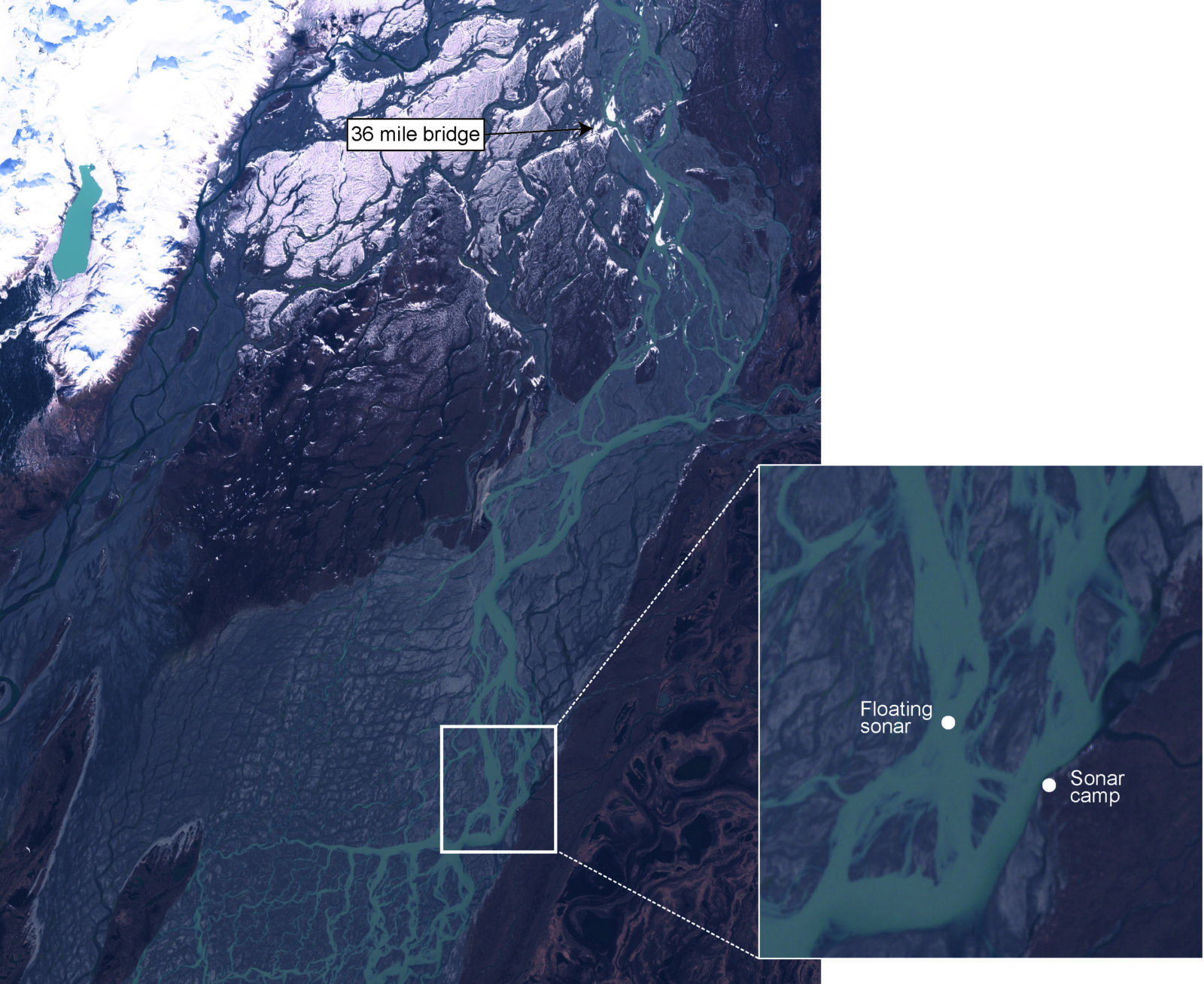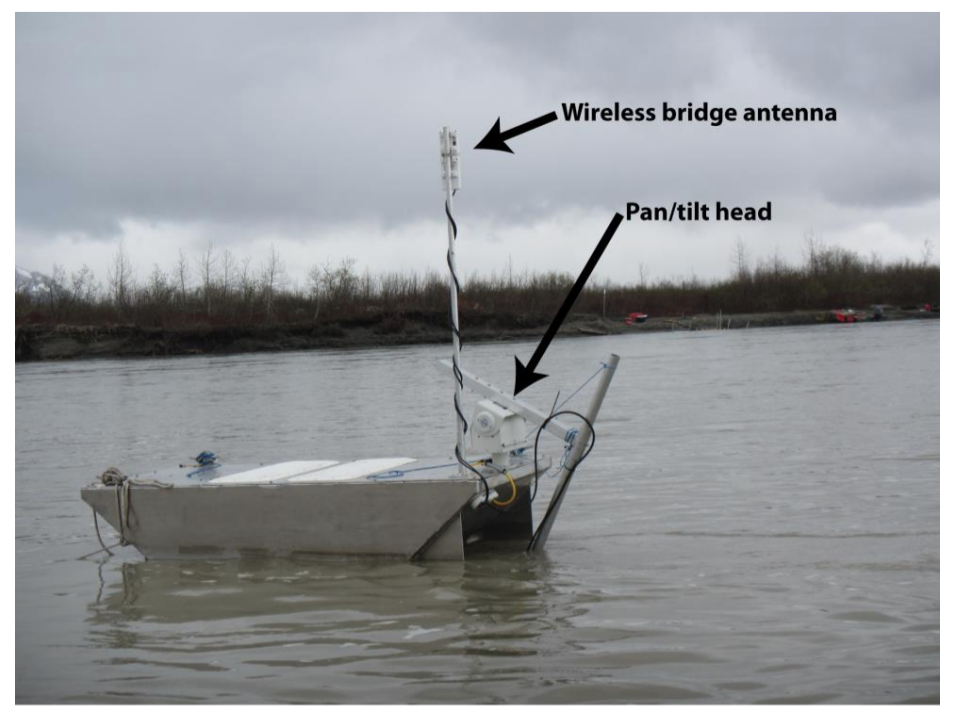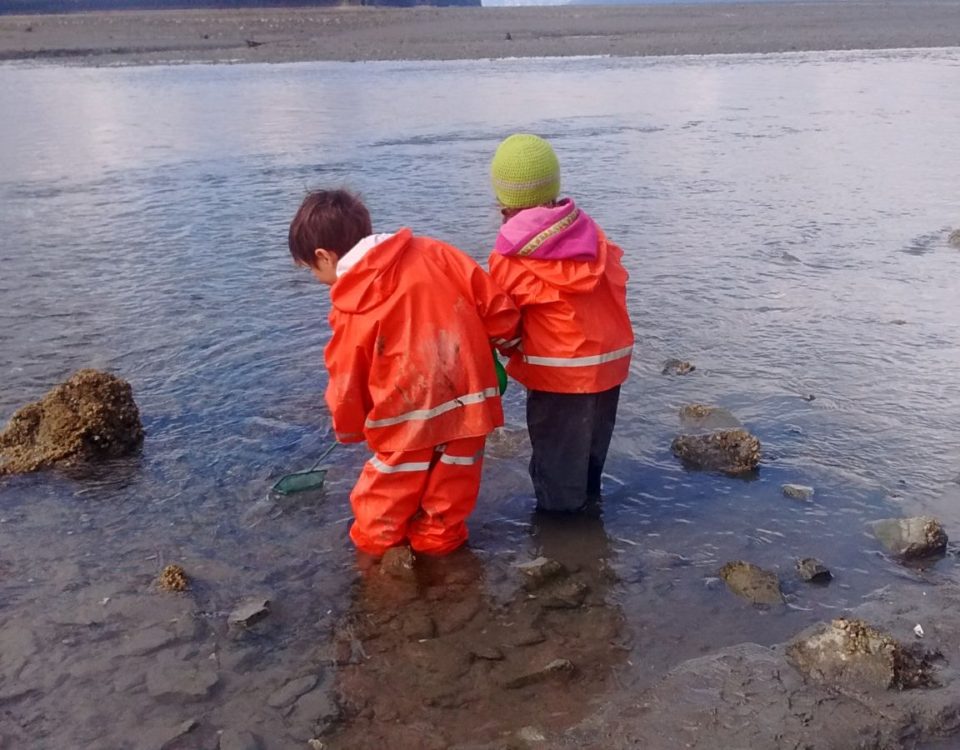2019 Lower Copper Sonar
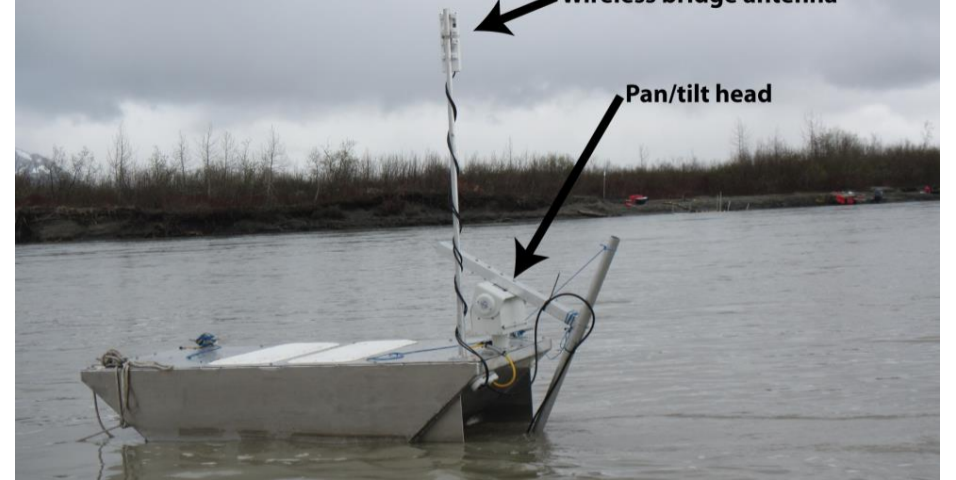

The Copper River Delta is an expansive floodplain that presents many challenges for counting fish populations. Photo courtesy CRPWSMA
By Kinsey Justa, May 16, 2019
Earlier this month, Dr. Rob Campbell and his team of seasonal research technicians set the lower Copper River sonars into place along the banks of the Copper River, and set up camp to monitor the site for the next several weeks. Since 2015, the Prince William Sound Science Center has deployed the sonars with the support of the Copper River Prince William Sound Marketing Association (CRPWSMA) and the NOAA Saltonstall Kennedy grant program.
The Copper River Delta is a wide and expansive floodplain, the geography of which changes with each passing year as sediment is transported from glacial deposits upriver to the wetlands below. Imagine for a moment the journey of an adult salmon coming from the open ocean to the mouth of the river and then upriver in order to spawn. The lower river presents many options for a salmon to transit upriver and indeed migrating fish can be found in many of the sloughs and streams on the Delta. This is why the Alaska Department of Fish and Game (ADF&G) is not able to consistently count fish in the river until it bottlenecks near Childs Glacier at Miles Lake, some 30 miles upriver of the ocean entry points. At the ADF&G site, sonars record imagery of passing salmon swimming along the banks in order to estimate escapement numbers. The data received from the sonar directly informs fishery management decisions in real-time during the fishing season.
Speaking to the goals and value of the lower sonar, Dr. Campbell says, “The sonar data is important because it gives the fisheries managers an index of the number of fish moving out of the ocean and into the river. In the early season, when prices are high, every fishing opportunity means a lot to the local economy and the sonar counts are another data point the managers can use when deciding on the timing and duration of a fishing period.”
In 2014, a conversation between Dr. Campbell and the CRPWSMA president, Jeff Bailey, left both parties with the impression that more data via the lower Copper River sonar would have a positive impact on fishery management decisions. CRPWSMA is funded by, and works on behalf of, the commercial gillnet fleet. In this way the development of the lower Copper River sonar is a testament to multiple sectors in the community coming together over the shared value of regional resiliency and science based management. The board of directors for CRPWSMA chose to work with the Prince William Sound Science Center to move forward on the project because they were confident in Dr. Campbell’s work. “We value working with the Science Center and helping fund the project because of their perspective and understanding of the region,” said Jeff Bailey of the sonar. “We knew that Rob would do the research in a professional manner and we hope to continue to help support this project in the future.”
Small improvements to the lower sonar have been made since its beginning in 2015. Last year, the Science Center was able to purchase sonars with funding from NOAA which will save significant money in the future, as sonars will no longer have to be rented each season. The team on site was also able to create and deploy a floating platform for the sonar head to point downwards into the river as opposed to sidelong from the bank. This allows better use of the sonar’s very wide field of view (120°) and allows the sonars to be easily moved to different locations as channels change.
Looking ahead to the future, Dr. Campbell is interested in gaining more data about salmon in general from this site, such as measurements of their transit time in the river. Data could be gained from a small fish tagging program to directly measure the length of time needed for a salmon to migrate upriver in the Copper River system.
For more questions please contact Rob Campbell at: coppersonar@pwssc.org and visit our in-season sonar page here: https://pwssc.org/2019-lower-copper-sonar/


